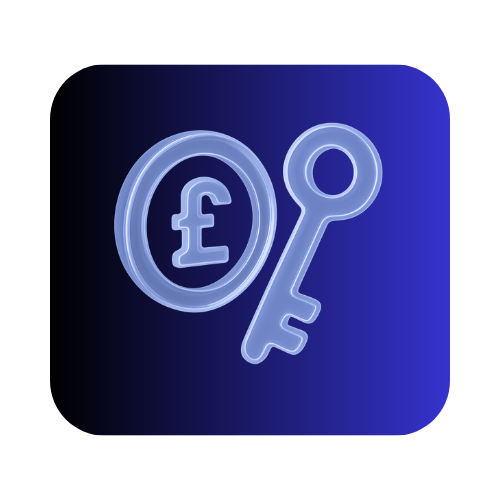 QED
QED
 English
English

 All Blogs
All Blogs

The Rise of the Digital Token: Unlocking New Frontiers in Ownership and Exchange
In an era where the world is swiftly moving toward digital transformation, a new concept is quietly revolutionizing how we own, trade, and interact with assets—the digital token. These tokens are redefining asset ownership, enabling decentralized finance, and laying the groundwork for future economies powered by blockchain.
Whether it’s buying a fraction of a luxury apartment in Dubai, participating in a decentralized finance platform, or owning a slice of a Picasso masterpiece, the digital token is turning abstract possibilities into real-world applications. This article dives into what a digital token is, how it's being used across industries, and how companies like Qedvault are leading the charge in this dynamic ecosystem.
A digital token is a programmable unit of value that represents an asset or utility on a blockchain network. It can symbolize ownership rights, access to services, participation in governance, or even real-world physical items like real estate or artwork.
These tokens are created through smart contracts on a blockchain and can be:
Regardless of type, each digital token is secured by blockchain’s immutable ledger, ensuring trust, transparency, and seamless peer-to-peer exchange.
The adoption of digital tokens is driven by the growing demand for faster, more transparent, and decentralized financial systems. These tokens enable users to:
According to a report by Boston Consulting Group, the tokenization of real-world assets could become a $16 trillion business opportunity by 2030, with digital tokens playing a central role in this transformation.
A compelling example of digital token adoption occurred in Manhattan in 2018. A luxury condo valued at $30 million was tokenized on the Ethereum blockchain. Each token represented a fractional ownership share of the property, enabling smaller investors to participate in a real estate market that is typically reserved for high-net-worth individuals.
This move not only democratized access but also proved the viability of blockchain in handling large-scale, regulated transactions using digital tokens. It set a precedent for future real estate tokenization efforts around the world.
At the forefront of the digital asset movement is Qedvault, a technology company committed to bringing secure, scalable blockchain solutions to enterprises. Qedvault offers an advanced platform for token creation, issuance, and lifecycle management.
Qedvault’s Digital Token Capabilities:
By providing modular blockchain infrastructure, Qedvault is helping companies, governments, and startups tokenize their assets while maintaining full transparency and compliance.
The economic influence of digital tokens extends far beyond cryptocurrency trading. According to Deloitte, tokenization can reduce transaction costs by up to 65%, improve operational efficiency, and create new revenue models for traditional industries.
Here are a few industries being transformed by digital tokens:
Financial institutions are recognizing the potential of digital tokens. From tokenized bonds to
decentralized lending, the traditional banking system is being redesigned. A study by JPMorgan predicts
that digital securities could capture 10% of global GDP by 2030.
Tokenized versions of fiat currency (CBDCs), stocks, commodities, and mutual funds are already being
tested or launched worldwide. What’s common among them all? The foundational role played by the digital
token.
Blockchain networks use token standards to define how digital tokens behave. The most common include:
Qedvault offers support for all major token standards, allowing clients to issue and manage tokens compatible with leading blockchain ecosystems.
The use of a blockchain CRM solution isn’t limited to retail or e-commerce. Let’s explore how different industries can benefit:
Despite the transformative potential, the digital token ecosystem is not without challenges:
This is where companies like Qedvault play a pivotal role. With built-in compliance, third-party audits, and scalable Layer-2 solutions, they are making digital token adoption secure, scalable, and enterprise-ready.
Sustainability is a growing concern in financial innovation. The use of blockchain and digital tokens in environmental, social, and governance (ESG) initiatives is accelerating.
Governments and regulators are catching up. The European Union’s MiCA framework, the U.S. SEC’s evolving guidelines, and Singapore’s forward-thinking sandbox environment all suggest a global trend toward regulated digital token ecosystems.
Central Banks in over 90 countries are piloting or developing Central Bank Digital Currencies (CBDCs), each functioning as a government-backed digital token aimed at replacing or supplementing fiat currency.
The path ahead for digital tokens is vibrant and diverse. Here’s what to expect:
From transforming how we invest, to how we govern, to how we protect the planet, the digital token is rapidly becoming the foundation of a decentralized, transparent, and inclusive digital economy.
Backed by blockchain’s core features—security, immutability, and transparency—digital tokens are bridging the physical and digital worlds in ways we never imagined possible.
And as innovators like Qedvault continue to deliver enterprise-grade platforms that make tokenization accessible and compliant, the age of token-driven commerce is not a distant future—it’s already here.
Start with a free trial and redefine trust with the digital product passport